
- Shandong Loyal Industrial Co.,Ltd.
- Macaroni Production Machine Instant Noodle Machine Biscuit Making Machine
Home> Company News> Unlock The Secret To Perfect mini kurkure machine: A mini kurkure machine Recipe Guide

Unlock The Secret To Perfect mini kurkure machine: A mini kurkure machine Recipe Guide
2025-01-03 16:40:08Introduction to Manual Mini Kurkure Machines
In the ever-evolving world of food machinery, the manual mini kurkure machine has emerged as a game-changer for snack producers seeking to unlock new levels of creativity and efficiency. As an expert in industrial food machinery, I have had the privilege of analyzing and reviewing countless snack-making machines, and the manual mini kurkure machine stands out for its unique blend of versatility, affordability, and ease of use.
1.The Heart of Snack Creation
At the core of the manual mini kurkure machine lies its innovative design, which allows for the precise control of snack production parameters. Unlike larger, automated machines that can be intimidating and complex, the manual mini kurkure machine offers a more approachable and intuitive interface. This makes it ideal for snack producers who want to experiment with different ingredients, textures, and flavors without the constraints of automated processes.
One of the most striking features of the manual mini kurkure machine is its ability to produce kurkure snacks, a popular and beloved crunchy treat enjoyed by people worldwide. The machine's design allows for the even distribution of ingredients and the application of the perfect amount of pressure to create snacks with a consistent texture and appearance. This consistency is crucial for maintaining brand integrity and meeting consumer expectations.
2.The Art of Manual Operation
Operating a manual mini kurkure machine is an art form that combines precision, patience, and creativity. Producers must have a deep understanding of the machine's mechanics and the snack-making process to achieve optimal results. However, this manual operation also presents an opportunity for snack producers to develop their unique snack recipes and production techniques.
The machine's manual controls enable producers to adjust settings such as temperature, pressure, and ingredient mix ratios to suit their specific needs. This level of customization allows for the creation of snacks with unique flavors, textures, and shapes that can set a producer apart in the competitive snack market.

Key Features and Benefits of Using a Manual Mini Kurkure Machine
In the realm of snack production, the manual mini kurkure machine stands out for its distinct features and numerous benefits. As we continue our exploration of this remarkable machine, let's delve into the specific components and operations that make it such a valuable asset for snack producers.
|
Compact Design for Versatility |
One of the most notable features of the manual mini kurkure machine is its compact design. This small footprint allows the machine to be easily integrated into various production environments, from small-scale home kitchens to larger industrial settings. The machine's portability also makes it ideal for snack producers who want to take their production on the road or set up temporary snack stalls at events and festivals. |
|
Manual Controls for Precision |
As mentioned earlier, the manual controls of the mini kurkure machine are a crucial aspect of its operation. These controls enable producers to fine-tune the snack-making process, adjusting settings such as temperature, pressure, and ingredient mix ratios to achieve the desired texture, flavor, and appearance. This level of precision is essential for creating high-quality snacks that meet consumer expectations and stand out in the competitive market. |
|
Cost-Effective Production |
Another significant benefit of using a manual mini kurkure machine is its cost-effectiveness. Unlike larger, automated machines, which require significant investments and ongoing maintenance costs, the manual mini kurkure machine offers a more affordable alternative for snack producers. This makes it an ideal choice for startups and small businesses looking to enter the snack market without breaking the bank. |
|
Customizable Snack Options |
The manual mini kurkure machine's ability to produce customizable snacks is another key feature that sets it apart. Producers can experiment with different ingredients, textures, and flavors to create unique snack options that cater to specific consumer preferences. This level of creativity and customization allows snack producers to differentiate themselves in the market and attract a loyal customer base. |
|
Easy Maintenance and Cleaning |
Finally, the manual mini kurkure machine is designed for easy maintenance and cleaning. With fewer moving parts and simpler mechanics than automated machines, the manual mini kurkure machine is less prone to breakdowns and requires less frequent maintenance. Additionally, the machine's components can be easily disassembled for thorough cleaning, ensuring hygiene and compliance with food safety regulations. |

Comparison with automated machines and their limitations
Automated machines or automation refers to the use of various technologies to perform tasks traditionally performed by humans, usually with increased efficiency, accuracy, and speed. However, like any technology, automated machines have their limitations. Below is a comparison of automated machines, focusing on their limitations:
1. Advantages of automated machines
|
Efficiency |
Automated machines can perform tasks quickly and consistently, reducing the time required for human labor. |
|
Accuracy |
Through precise programming and control, automated machines can achieve a high level of accuracy in their work. |
|
Consistency |
Automated processes are less affected by human factors such as fatigue or emotions, ensuring consistent output quality. |
|
Scalability |
Automated systems can be scaled up or down to meet changing production needs. |
2. Limitations of automated machines
|
High cost |
1.Initial investment: Purchasing, installing, and setting up automated machines often requires a large capital expenditure. 2.Maintenance: Ongoing maintenance and repairs can also be costly, especially for complex or specialized equipment. |
|
Technical complexity |
1.Programming and setup: Automated machines require skilled personnel for programming, setup, and troubleshooting. 2.Integration: Integrating automated systems with existing processes and systems can be challenging and time-consuming. |
|
Lack of flexibility |
1.Predefined programs: Automated machines operate based on predefined programs, limiting their ability to adapt to unexpected changes or variations in tasks. 2.Limited adaptability: While some automated systems can be reprogrammed, doing so often requires a great deal of effort and time. |
|
Human-machine interaction |
1.Limited interaction: Automated machines often lack the ability to interact with humans in a natural and intuitive way. 2.Dependence on operators: Even in highly automated environments, human operators are often required to monitor and manage the system. |
|
Dependence on external factors |
1.Power and network: Automated machines rely on stable power and network connections to operate effectively. 2.Environmental conditions: Extreme or adverse environmental conditions (such as heat, humidity, dust, etc.) may affect the performance and life of automated equipment. |
|
Ethical and social issues |
Job loss: The adoption of automation may lead to job losses, especially in industries that rely heavily on manual labor. Data privacy: Automated systems often collect and process large amounts of data, which raises concerns about data privacy and security. |
- Comparison with human labor
|
Adaptability and creativity |
Humans are good at adapting to new situations and solving problems creatively, which may be difficult for automated machines. |
|
Judgment and Decision Making |
Humans can make complex judgments and decisions based on intuition and experience, whereas automated machines rely on predefined rules and algorithms. |
|
Emotional Intelligence |
Humans have the ability to understand and respond to emotions, which is important in many customer service and interpersonal interactions. |
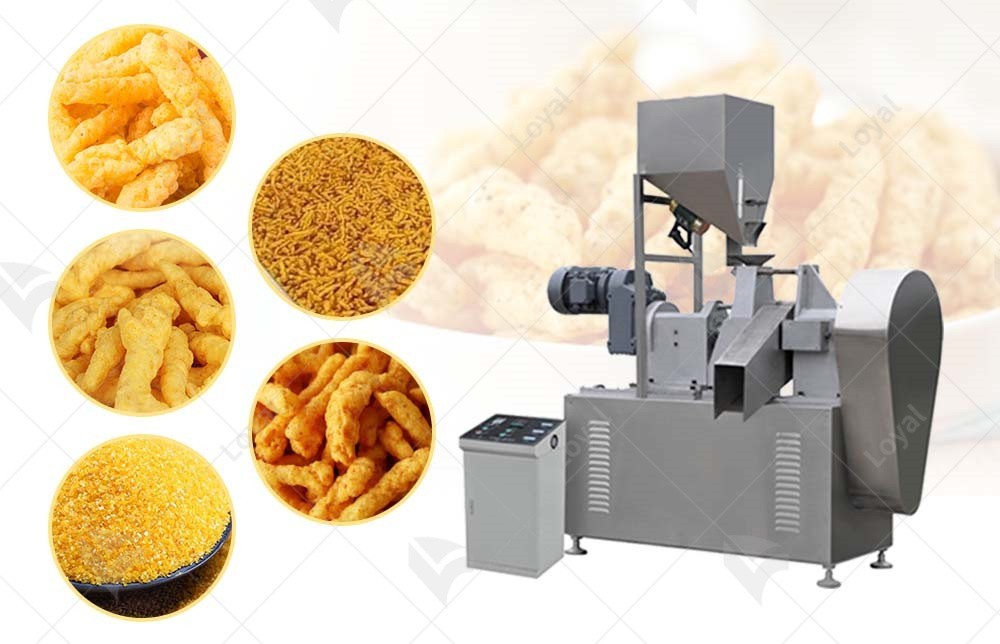
Step-by-Step Guide to Operating a Manual Mini Kurkure Machine
Operating a manual mini Kurkure machine involves several steps that ensure safe and efficient production. Here is a step-by-step guide to help you operate the machine:
1.Preparation
Read the Manual: Before operating the machine, thoroughly read and understand the operator's manual. The manual contains important safety information, instructions on proper operation, and maintenance tips.
Personal Protective Equipment (PPE): Wear appropriate PPE, such as safety glasses, gloves, and ear protection, to prevent injuries.
Inspect the Machine: Conduct a pre-operational inspection of the machine. Check for any loose parts, leaks, or damage that could affect its safe operation. If any issues are found, do not operate the machine until it has been repaired by a qualified technician.
2.Starting the Machine
Power On: Ensure that the machine is connected to a stable power source and switch it on.
Warm-Up: Allow the machine to warm up for a few minutes before starting production. This ensures that all moving parts are lubricated and ready for operation.
3.Feeding the Machine
Load Ingredients: Load the required ingredients into the designated hoppers or containers of the machine. Ensure that the ingredients are clean and free from contaminants.
Adjust Settings: Adjust the machine settings according to the desired product specifications, such as thickness, crispiness, and flavor.
4.Operating the Machine
Start Production: Engage the machine's drive system to start the production process. Monitor the machine closely to ensure that it is operating smoothly.
Control Flow: Use the controls to regulate the flow of ingredients and the speed of the machine. This ensures that the product is evenly distributed and processed.
5.Monitoring and Maintenance
Quality Control: Regularly check the quality of the product being produced. Look for any defects or inconsistencies and adjust the machine settings as necessary.
Clean the Machine: Clean the machine regularly to prevent build-up of residue and maintain optimal performance. Follow the cleaning instructions provided in the manual.
Lubricate Moving Parts: Lubricate the moving parts of the machine as recommended in the manual to ensure smooth operation and extend the machine's lifespan.
6.Shutdown
Stop Production: When production is complete, disengage the machine's drive system and allow it to come to a complete stop.
Power Off: Switch off the machine and disconnect it from the power source.
Clean Up: Clean up the work area and store any remaining ingredients properly.
7.Safety Tips
Stay Alert: Always stay alert and focused while operating the machine. Do not attempt to multitask or operate the machine while distracted.
Emergency Stop: Familiarize yourself with the emergency stop procedures and keep the emergency stop button within easy reach in case of an emergency.
Regular Maintenance: Perform regular maintenance checks and repairs as recommended in the manual to ensure the machine's safe and efficient operation.

Creative Applications and Customizations with a Manual Mini Kurkure Machine
A manual mini Kurkure machine offers a range of creative applications and customizations that can be tailored to suit different tastes and preferences. Here are some innovative ways to use and customize your machine:
1.Customizing Flavors and Ingredients
Unique Flavor Combinations: Experiment with different spice blends, herbs, and seasonings to create unique flavors. For example, try mixing in curry powder, cumin, or garlic for a savory twist.
Healthy Options: Incorporate nutritious ingredients like whole grains, seeds, nuts, or dried fruits to create healthier versions of Kurkure.
Experimental Toppings: Add creative toppings such as cheese, chocolate, or candy pieces to create sweet or savory snacks that cater to diverse tastes.
2.Textures and Shapes
Different Textures: Adjust the machine settings to produce Kurkure with various textures, from crunchy and brittle to softer and chewier.
Unique Shapes: Use molds or cutters to create unique shapes and designs. This can add a fun and visually appealing element to your snacks.
3.Packaging and Presentation
Custom Packaging: Design and create custom packaging that reflects your brand or product. Attractive packaging can enhance the appeal and perceived value of your snacks.
Gift Sets: Combine different flavors and textures of Kurkure into gift sets for special occasions or as a unique gift idea.
4.Marketing and Branding
Personalized Branding: Add your logo, branding, and marketing messages to the packaging or the product itself to create a unique and recognizable brand.
Promotional Campaigns: Use your customized Kurkure to create promotional campaigns or events. Offer free samples, host tasting events, or partner with local businesses to expand your reach.
5.Collaborations and Custom Orders
Collaborations: Collaborate with chefs, food bloggers, or other food enthusiasts to create limited-edition flavors or designs. This can help increase your product's visibility and appeal to a wider audience.
Custom Orders: Offer custom orders to cater to specific dietary requirements, preferences, or events. This can include creating personalized flavors, shapes, or packaging for special occasions.
6.Experimentation and Innovation
New Ingredient Combinations: Continuously experiment with new ingredients and flavor combinations to stay ahead of trends and offer something unique to your customers.
Technological Integration: Consider integrating technology, such as automation or app integration, to streamline production, improve quality control, or offer a more personalized customer experience.
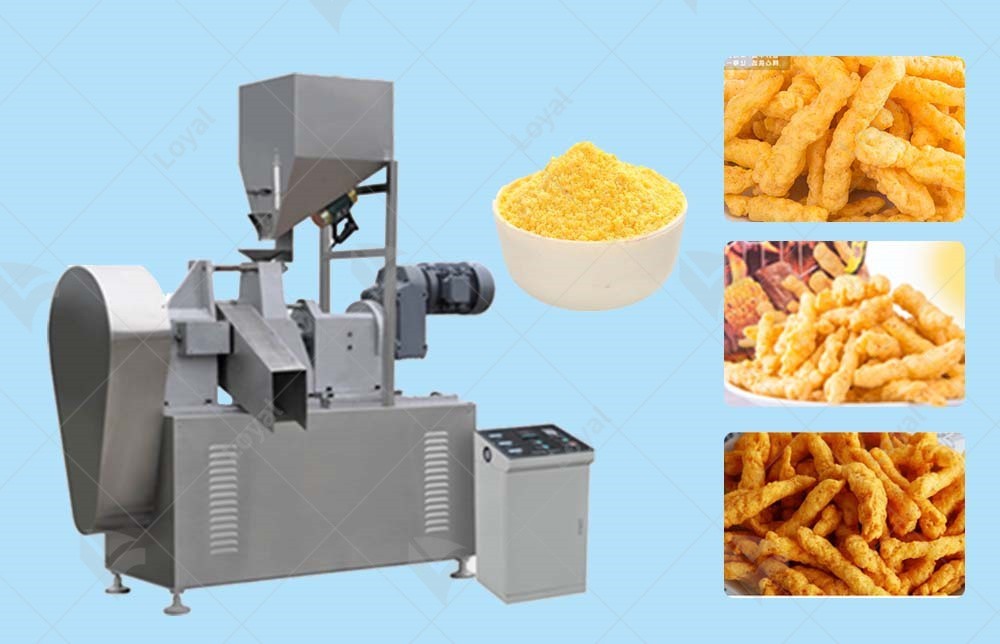
Reference
The following are five authoritative foreign literature websites in the field of Industrial food machinery:
1. Food Engineering Magazine
Website: https://www.foodengineeringmag.com/
2.Food Processing Magazine
Website: https://www.foodprocessing.com/
3.Journal of Food Engineering
Website:https://www.journals.elsevier.com/journal-of-food-engineering
4. Food Manufacturing Magazine
Website:https://www.foodmanufacturing.com/
5. International Journal of Food Science & Technology
Website:https://onlinelibrary.wiley.com/
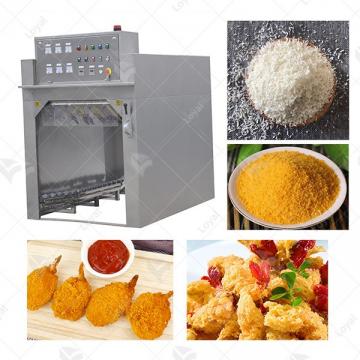 Commercial Japanese Panko Bread Crumb Grinder Machine
Commercial Japanese Panko Bread Crumb Grinder Machine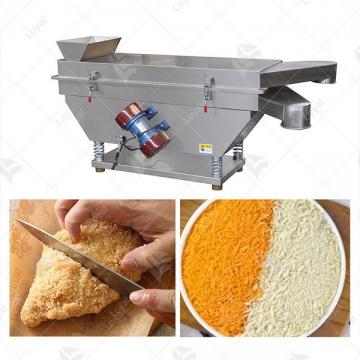 Japanese Bread Crumbs Processing Line
Japanese Bread Crumbs Processing Line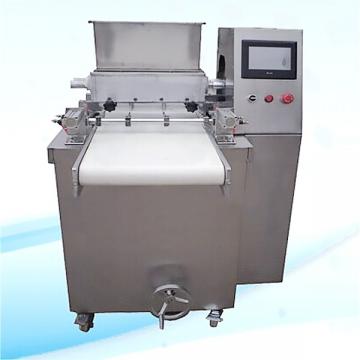 Automatic Cookies Making Machines
Automatic Cookies Making Machines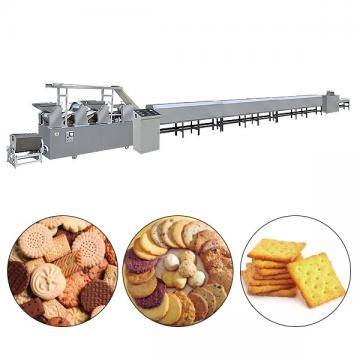 Fully Automatic Biscuit Making Machines
Fully Automatic Biscuit Making Machines